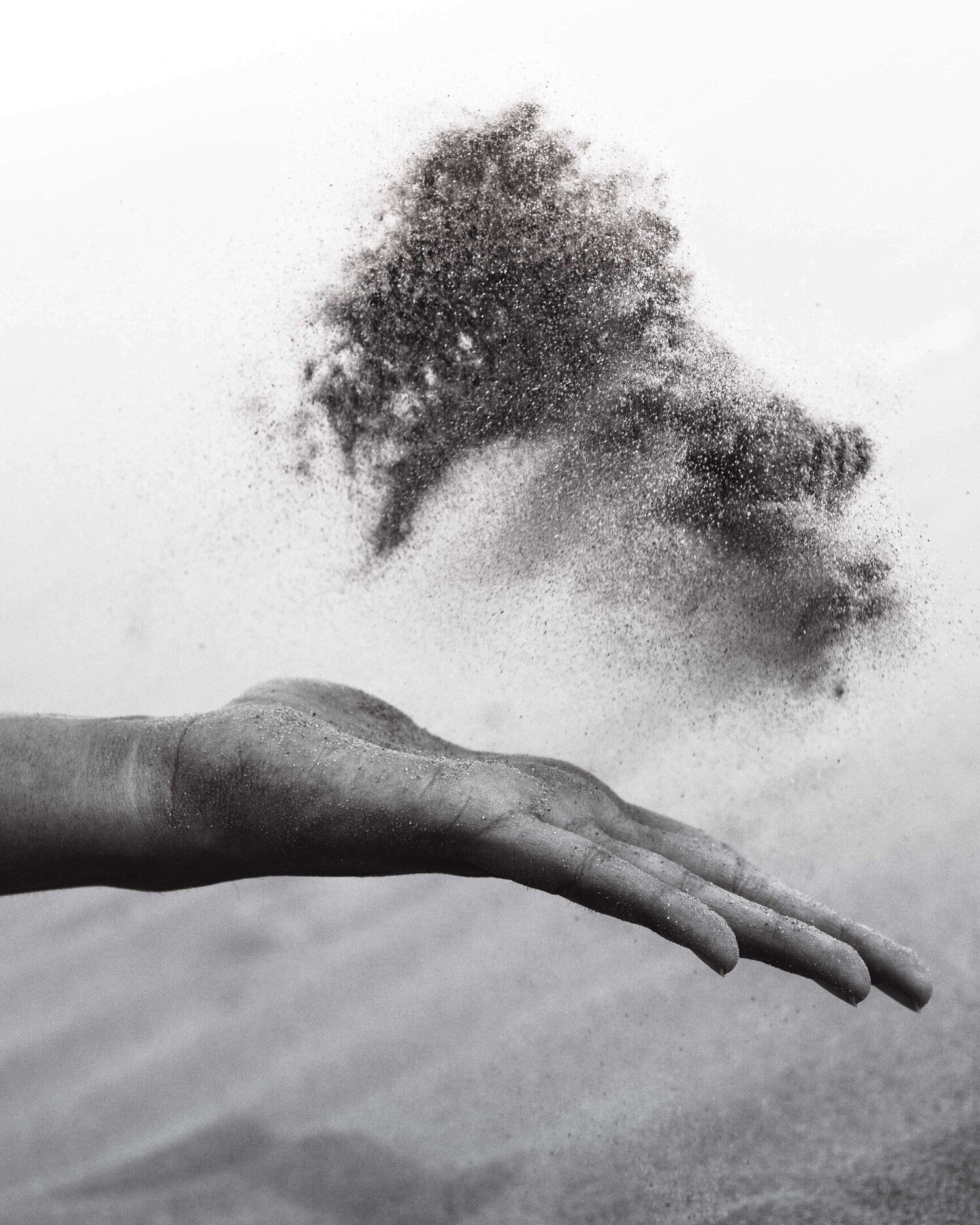Instead
Mar 9
/
Jen Macnab

Right now, we find ourselves in the season of Lent. This 40-day stretch begins with Ash Wednesday and culminates with Easter Sunday. Although many are unfamiliar with Ash Wednesday, some honor the holiday (holy day) as an essential time of reflection and fasting. Those familiar with Ash Wednesday understand it serves as a reminder of our mortality, a day when many around the world hear the words, “you are dust, and to dust, you shall return.”
We may come from dust (past) and return to dust (future), but the path of our life journey is also a dusty road. In other words, we experience ashes along the way.
Now to someone standing on the outside, this emphasis on our impermanence may feel a bit morbid. Particularly for a Christian people who shout out with joy, “He is Risen!” But if you have ever sat with silence, recognizing dust is unavoidable, you know the power of this practice. You understand this deep reflection can usher in balance, peace, and beauty.
Balance and Peace
Life and circumstances can either form us or derail us, depending on our perspective and our response. As a perfect example, I recently found myself in a fascinating conversation with an attendant at the DEQ. The man helping me was large in stature, with tattoos down his arms and a scar on his head. As it turned out, he used to work as a security guard in Oakland, California. Through our conversation, he shared he was shot six times and pronounced clinically dead. We stood talking for some time.
The attendant ultimately acknowledged he might not wake up one day, and to that, he said, “oh well.” But in the meantime, he recognized he was awake and alive now and for the day he had great balance and peace. In light of his impermanence, the small stuff was not worth the sweat. He even went so far as to say, if someone came to his line complaining, he would invite the person to move on over to the next line! He was not putting up with pessimism in his path.
The attendant at the DEQ may or may not have loved the duties of his actual work. And he may not have found the work to be particularly challenging or exciting day after day. Nevertheless, he had a calm, centered, groundedness about him. His centeredness and inner stability seemed to reflect an understanding of his purpose and meaning in the time, place, and work. The attendant looked dust in the face yet knew that it was not his time. This awareness gave him unique energy to seize each day he was given.
Beauty
The balance, peace, and joy radiating from the large, tattooed DEQ attendant was a life force of beauty. Similarly, you can find the same spirit in a 90-something-year-old World War II veteran. Instead of witnessing a tired, under-nourished soldier return home at the end of the war, you can look into the eyes of a wise, resilient member of the Greatest Generation. Although the veteran came face to face with the ashes and the dust, time delivered transformation. The “new” contains beauty.
And yet if you ask the same veteran about their war experience, you can see the dust and ashes of embodied trauma are still there. Although you might not see them at first glance, the ashes will reveal themselves through a thoughtful pause or perhaps even a teary eye.
As you journey with others, you can see the traces of ashes in their lives. They are etched in the heart of the mother who lost a child even though a beautiful family might surround her. And the same ashes become visible in the eyes of the widow who may or may not have re-married.
The ashes are the evidence of the pain, the trauma, the loss, the hurt, the dream deferred.
And these ashes, although transformational, remain part of our story in this life. It is no different than the crucifix of the Friday and the empty cross of the Sunday. Although many emphasize either the Friday (as evidenced by the body still hanging on the cross in the sanctuary) or the Sunday (the blooming flowers by the empty cross), it is not an “either-or” dynamic.
The depth in the dust and the power of the instead is always a “both-and” story. Beauty rises instead of ashes, yet the ashes contain a vital part of the transformational narrative. We love the idea of transformation, but we often do not hold the same affection for the process of being transformed.
Yet like the DEQ attendant, we have been given another day for the journey.
May you have strength, hope, resilience on your side as you recognize and encounter the ashes in your past, current, and future narrative. And may those ashes serve as an invitation toward the balance, peace, and beauty of the “instead.”

Jen Macnab
Jen Macnab enjoys living in Tigard with her husband and two daughters. Together they keep busy with a garden, outdoor clothesline, and backyard chickens. Jen also serves with the Seminary Doctoral Programs at Portland Seminary. https://www.jenmacnab.com
Jen Macnab enjoys living in Tigard with her husband and two daughters. Together they keep busy with a garden, outdoor clothesline, and backyard chickens. Jen also serves with the Seminary Doctoral Programs at Portland Seminary. https://www.jenmacnab.com

